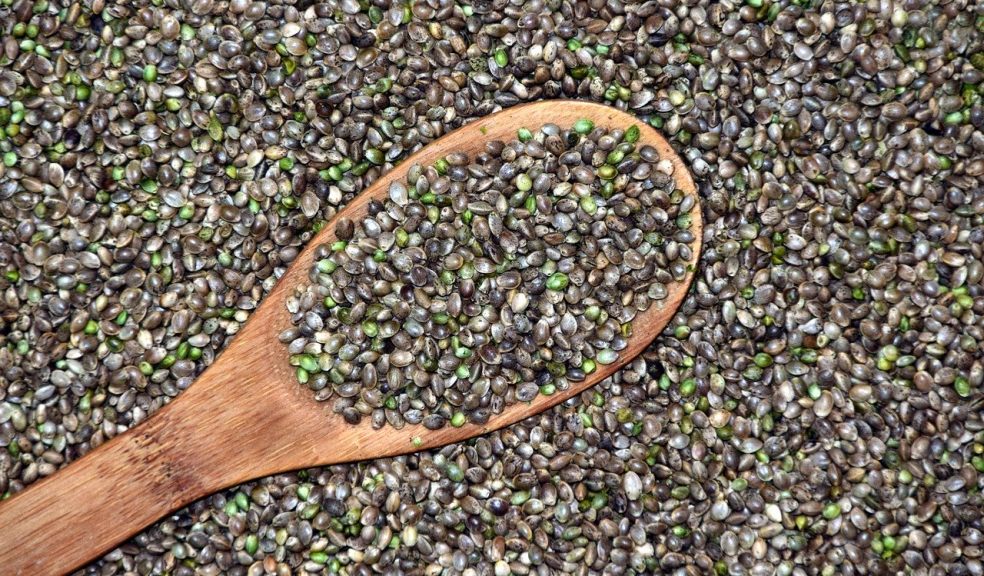
Cannabis seeds: the new protein foods
Among our neighbours to the south, the popularity of hemp and its by-products is skyrocketing. Market research has shown that over the past two years, sales of hemp-based food have increased by almost 60%!
This enthusiasm is not yet fully manifested on this side of the border, but it will most likely be soon.
Thanks to some of the best companies and websites, we can now buy cannabis seeds on Sensoryseeds. So, let's get ready to receive this wave and take a look at the subject.
Hemp and marijuana: is it the same thing?
Since a few years now, commercial production of hemp has been permitted in many countries under the Industrial Hemp Regulations. But beware, the varieties classified in the “industrial hemp” category are different from those commonly called “marijuana”.
Unlike their illegal cousins, approved varieties are low in THC (delta-9-tetrahydrocannabinol), the psychoactive substance found in hemp. In many countries, the cultivation of industrial hemp is still prohibited. Still, the importation of seeds, oil, flour and other products made from industrial hemp is permitted — moreover, the products currently invading the UK and Europe market.
Cannabis seed’s nutritional profile
Why do some people add hemp oil or seeds to their menu? For taste, perhaps, but above all for the dietary benefits attributed to them, especially their rich content of protein and good fats.
Proteins in the seed. The cannabis seeds contain a good deal of protein, more than flax, sunflower, and sesame seeds. You will find 4.9g of protein in the content of 15g of cannabis seeds!
However, like most plant proteins, they are incomplete. They contain all the essential amino acids, but some are not present in sufficient quantity to meet the needs of the organism.
Note that this characteristic does not cause a problem if you have a balanced and varied diet. In fact, by composing your menu with a variety of foods from the four groups in Canada's Food Guide, you fill up with all the essential amino acids you need every day.
Oil fats
The primary health argument for hemp is undoubtedly the essential fatty acid content of its oil. Its oil contains indeed alpha-linolenic acid (ALA), which is part of the omega-3 family, and linolenic acid (LA), which is part of the omega-6 family.
These essential unsaturated fats are said to be crucial because the body is unable to synthesize them. It is, therefore, necessary to draw them from food.
However, several scientists criticize modern food for being too rich in omega-6 and too low in omega-3. Why? Here is one of the explanations proposed: the massive consumption of oils rich in omega-6, abundantly used in the food industry. To rebalance the omega-6 / omega-3 ratio in our diet,
The hemp seed oil contains three times more omega-6 than omega-3. This report is interesting when compared to that of other oils such as safflower oil, widely used in the industry, or sunflower oil.
However, hemp seed oil does not win the prize. Canola oil contains twice as much omega-6 as omega-3, and even better, linseed oil has the opposite ratio of hemp seed oil: three times more omega-3 than omega-6!
A source of gamma-linolenic acid
In theory, gamma-linolenic acid (GLA) is not an essential fatty acid because the body has what it takes to synthesize it.
On the other hand, as several factors affect its synthesis (ageing, smoking, intake of trans fatty acids, heavy consumption of alcohol), it is good to go and get it directly from food. Hemp seed oil is one of the few sources of GLA. Other sources are borage, primrose and blackcurrant seed oils.
Cardioprotective and antieczema virtues?
There is very little scientific data available on the health benefits of hemp. Three studies have been identified.
Two of them looked at the possible cardioprotective properties associated with hemp. The first, carried out in rats, showed that those who had had a diet containing cannabis seed recovered better after ischemia (stop or significant reduction in blood circulation in the cardiac arteries).
The "how to" of cannabis seeds
Since it contains a large proportion of polyunsaturated fats (omega-3 and omega-6), the hemp seed oil is not suitable for cooking. So, use it for cold seasoning: to lightly sprinkle the steamed vegetables or to make a salad dressing, for example.
Because of its “herbaceous” taste, it goes particularly well with bitter lettuces (arugula). The shelled hemp seeds are tender to the tooth and have a delicate nutty flavor.
They can be eaten as is or sprinkled on a salad or rice. As with other foods rich in omega-3, it is recommended to keep it in the refrigerator.
Cannabis seeds are right for you
Cannabis seed and oil have the advantage of containing GLA besides adding flavor and variety to the menu. However, if the goal is to rebalance the omega-6 / omega-3 ratio, seeds and flaxseed oil are more effective and economic choices.
Hemp seeds are on average more expensive than flax seeds, but you will find the best value and top-quality seeds on websites such as SensorySeeds.

















